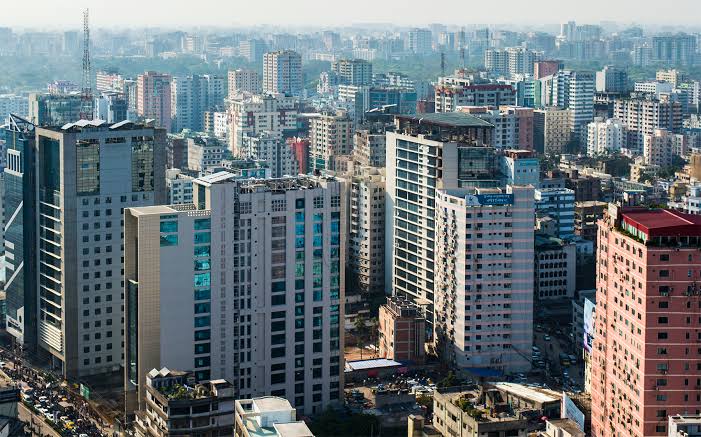Nirmal Barman
Published:2018-04-19 16:30:24 BdST
Bangladesh's air quality falling fast: Report
FT ONLINE
A global study has warned that the air quality in Bangladesh has been falling fast since 2010, taking the concentration of dangerous substance, known as particulate matter or PM 2.5, in the air to 10 times higher than the maximum level set by the World Health Organisation (WHO).
WHO has set the safe level of the substance to 10'g/m3 (one-millionth of a gram) while it was 101'g/m3 in Bangladesh's air in 2016, according to the State of Global Air-2018 report, released in the United States on Tuesday.
Pakistan, Bangladesh and India have experienced the steepest increases in air pollution levels since 2010 and now demonstrates the highest sustained concentration of dangerous matter in the air, the report said.
A survey conducted from 2013 to 2016, by the Department of Environment (DoE) of Bangladesh, on air quality in Dhaka detected that of the PM 2.5 58 percent in the capital city comes from traditional brickfields, while road dust is liable for 15 percent and motor vehicles 10.4 percent.
The DoE in its annual report for 2016-17 highlighted some of the government's initiatives to control air pollution. These include modernisation of brick kilns, controlling black smoke emitting motor vehicles and creating mass awareness to remove the man-made causes of air pollution.
The report of the Boston-based Health Effects Institute (HEI) also raised a danger signal saying that 95 percent of the world population is inhaling unsafe air, and most of them live in underdeveloped countries.
The report noted that over one third of the world's population is exposed to polluted air from the burning of solid fuels for heating or cooking indoors. And the polluted air caused deaths of 30 lakh people in India and China and another 30 lakh around the world.
Referring to a report of HEI, the DoE said that air pollution related diseases cause death of over 1.22 lakh people in Bangladesh each year.
The HEI report said that exposure to air pollution led to strokes, heart attacks, lung cancer and chronic lung disease, causing many of those premature deaths.
It also said that air pollution is the fourth-highest cause of death among all health risks globally, coming in below high blood pressure, diet and smoking.
According to the report, air pollution is below the WHO's benchmark in Australia, Brunei, Canada, Estonia, Finland, Greenland, Iceland, New Zealand, Sweden, and several Pacific island nations while it is much higher than the safe level in Niger, Egypt, Cameroon, Nigeria, Saudi Arabia and Qatar.
Unauthorized use or reproduction of The Finance Today content for commercial purposes is strictly prohibited.










